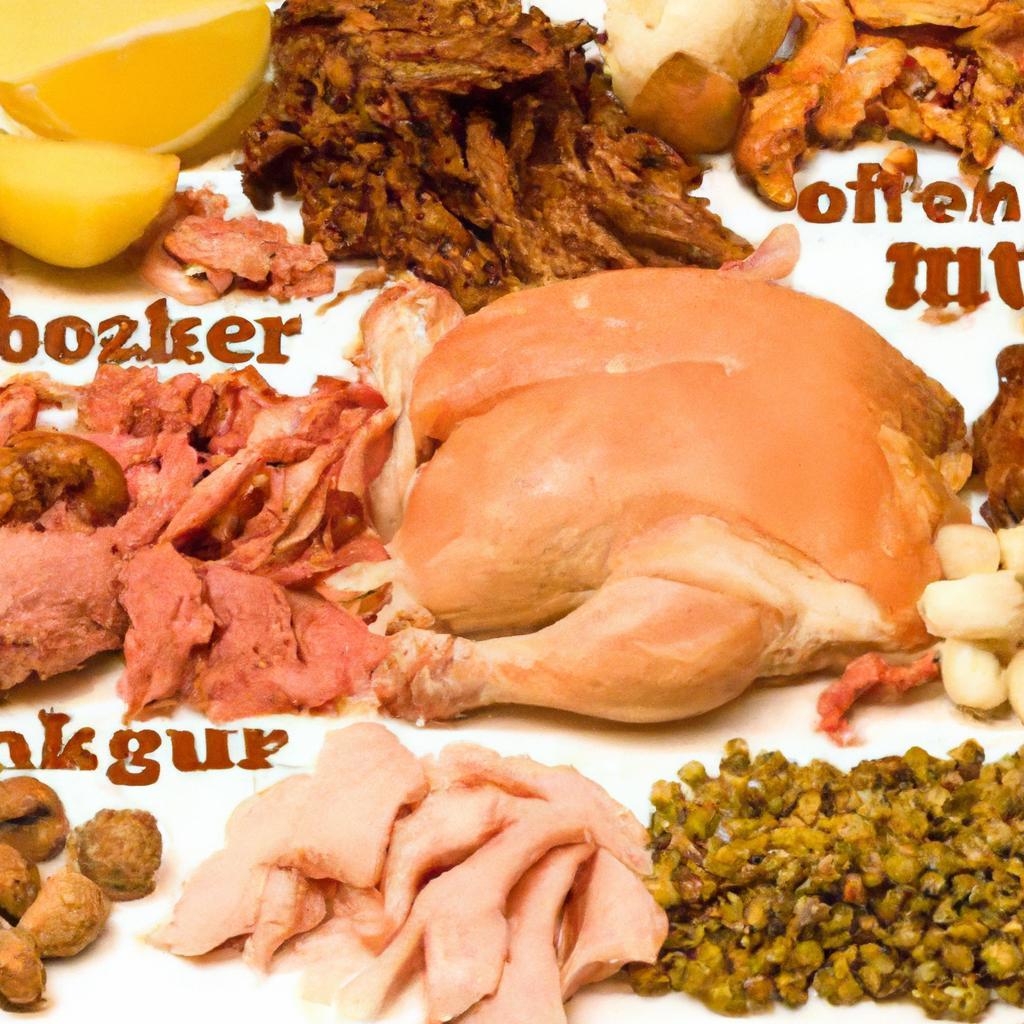Imagine a devoted dog owner named Sarah, who believed she was giving her furry friend the best by serving him cooked chicken every day. At first, her dog, Max, thrived—his coat gleamed, and his energy soared. But soon, Sarah noticed he was lethargic and had digestive issues. Concerned, she consulted a vet, who explained that while chicken is nutritious, a balanced diet is essential for Max’s health. Variety is key! Feeding your dog a mix of proteins, vegetables, and grains ensures they receive all necessary nutrients. Make mealtime exciting and healthy for your beloved pet!
Contents
- Understanding the Nutritional Benefits of Cooked Chicken for Dogs
- Evaluating the Risks of Feeding Cooked Chicken Daily
- Balancing Your Dogs Diet: Incorporating Cooked Chicken Wisely
- Expert Recommendations for Safe and Healthy Feeding Practices
- Q&A
Understanding the Nutritional Benefits of Cooked Chicken for Dogs
When considering a daily diet for your dog, cooked chicken stands out as a highly nutritious option. This protein-rich food is not only palatable for most dogs but also offers a range of essential nutrients that contribute to their overall health. By incorporating cooked chicken into your dog’s meals, you can ensure they receive a balanced intake of vital components necessary for their well-being.
One of the primary benefits of cooked chicken is its high protein content, which is crucial for muscle development and maintenance. Dogs, especially active breeds, require adequate protein to support their energy levels and physical activities. Additionally, chicken is a source of essential amino acids, which play a significant role in various bodily functions, including tissue repair and immune system support. Feeding your dog cooked chicken regularly can help promote a strong and healthy physique.
In addition to protein, cooked chicken provides important vitamins and minerals that contribute to your dog’s overall health. It is rich in B vitamins, which are essential for energy metabolism and maintaining a healthy nervous system. Furthermore, chicken contains phosphorus and selenium, both of which are important for bone health and antioxidant protection. By including cooked chicken in your dog’s diet, you can help ensure they receive these critical nutrients in a digestible form.
Moreover, cooked chicken is often easier for dogs to digest compared to other protein sources, making it an excellent choice for dogs with sensitive stomachs or food allergies. When prepared without seasoning or additives, it can serve as a wholesome base for homemade dog meals or as a supplement to commercial dog food. By offering cooked chicken as a daily staple, you can enhance your dog’s diet while also catering to their taste preferences, ensuring they enjoy their meals and stay healthy.
Evaluating the Risks of Feeding Cooked Chicken Daily
Feeding your dog cooked chicken daily may seem like a wholesome choice, but it’s essential to consider the potential risks involved. While chicken is a great source of protein, relying solely on it can lead to nutritional imbalances. Dogs require a variety of nutrients to thrive, including vitamins, minerals, and fatty acids that may not be adequately provided by chicken alone. A diet lacking in diversity can result in deficiencies that affect your dog’s overall health.
Another concern is the possibility of food allergies or sensitivities. Just like humans, dogs can develop allergies to specific proteins over time. Introducing cooked chicken as a daily staple could increase the risk of your dog developing an intolerance, leading to symptoms such as itching, gastrointestinal upset, or even more severe reactions. Monitoring your dog for any signs of discomfort is crucial if you choose to include chicken in their diet regularly.
Moreover, the method of preparation plays a significant role in the safety of feeding chicken to your dog. Cooked chicken should always be free of seasoning, bones, and skin, as these can pose health risks. Bones can splinter and cause choking or internal injuries, while certain seasonings, like garlic and onion, are toxic to dogs. Ensuring that the chicken is prepared safely is vital to prevent any adverse effects on your pet’s health.
Lastly, consider the long-term implications of a monotonous diet. Dogs thrive on variety, and a lack of different food sources can lead to behavioral issues, such as food boredom or reluctance to eat. Incorporating a range of protein sources, vegetables, and grains can not only enhance your dog’s enjoyment of mealtime but also support their physical and mental well-being. A balanced diet is key to a happy and healthy dog, making it essential to evaluate the risks of a chicken-only regimen.
Balancing Your Dogs Diet: Incorporating Cooked Chicken Wisely
When considering the inclusion of cooked chicken in your dog’s diet, it’s essential to approach it with a balanced mindset. While chicken is a great source of protein and can be highly palatable for dogs, it should not be the sole component of their meals. A diet that consists exclusively of chicken can lead to nutritional deficiencies over time. To ensure your furry friend receives all the necessary nutrients, it’s crucial to incorporate a variety of ingredients.
To create a well-rounded diet, consider mixing cooked chicken with other protein sources and nutrient-rich foods. **Some excellent options include:**
- Lean meats like turkey or fish
- Vegetables such as carrots, peas, and sweet potatoes
- Whole grains like brown rice or quinoa
- Healthy fats from sources like fish oil or flaxseed
By diversifying your dog’s meals, you can provide a broader spectrum of vitamins and minerals that are vital for their overall health. Additionally, rotating the protein sources can help prevent food sensitivities and keep mealtime exciting for your pet.
Portion control is another critical aspect when incorporating cooked chicken into your dog’s diet. While it may be tempting to offer generous servings of this tasty protein, moderation is key. **Consider the following tips:**
- Adjust the amount of chicken based on your dog’s size, age, and activity level.
- Monitor your dog’s weight and overall health regularly.
- Consult with your veterinarian to determine the appropriate portion sizes.
By being mindful of portion sizes, you can prevent obesity and ensure your dog maintains a healthy weight, which is essential for their long-term well-being.
Lastly, always ensure that the chicken is prepared safely. Remove any bones and skin, as these can pose health risks to your dog. **Additionally, keep in mind:**
- Avoid seasoning or adding sauces that may contain harmful ingredients.
- Cook the chicken thoroughly to eliminate any harmful bacteria.
- Introduce cooked chicken gradually into your dog’s diet to monitor for any adverse reactions.
By following these guidelines, you can confidently incorporate cooked chicken into your dog’s meals, enhancing their diet while keeping their health in check.
Expert Recommendations for Safe and Healthy Feeding Practices
When considering a diet that includes cooked chicken for your dog, it’s essential to ensure that it is part of a balanced and varied meal plan. While chicken is a great source of protein, relying solely on it can lead to nutritional deficiencies. **Veterinarians and pet nutritionists recommend incorporating a variety of protein sources**, such as beef, fish, and legumes, to provide a broader spectrum of nutrients that your dog needs for optimal health.
In addition to diversifying protein sources, it’s crucial to include **fruits and vegetables** in your dog’s diet. Foods like carrots, green beans, and blueberries can offer essential vitamins and minerals while also providing fiber. **Consulting with a veterinarian** can help you create a well-rounded meal plan that meets your dog’s specific dietary needs, taking into account their age, weight, and activity level.
When preparing cooked chicken for your dog, ensure that it is **plain and free from seasoning**. Ingredients like garlic, onions, and excessive salt can be harmful to dogs. Always remove the skin and bones, as these can pose choking hazards or lead to digestive issues. **Cooking methods such as boiling or baking** are preferable, as they retain the nutritional value without introducing harmful additives.
Lastly, monitor your dog’s health and behavior when introducing new foods into their diet. **Keep an eye out for any signs of allergies or digestive upset**, such as vomiting or diarrhea. Regular check-ups with your veterinarian can help ensure that your dog is thriving on their diet. By following these expert recommendations, you can confidently include cooked chicken as a part of a safe and healthy feeding routine for your furry friend.
Q&A
-
Is it safe to feed my dog cooked chicken every day?
Yes, cooked chicken is generally safe for dogs and can be a healthy part of their diet. However, it should not be the sole component of their meals. A balanced diet is essential for your dog’s overall health.
-
Can cooked chicken provide all the nutrients my dog needs?
No, while cooked chicken is a good source of protein, it lacks essential nutrients such as vitamins and minerals. It’s important to include a variety of foods in your dog’s diet, including vegetables and grains, to ensure they receive all necessary nutrients.
-
How much cooked chicken should I feed my dog daily?
The amount of cooked chicken you can feed your dog depends on their size, age, and activity level. As a general guideline, chicken should make up no more than 10% of your dog’s daily caloric intake. Consult your veterinarian for personalized recommendations.
-
Are there any risks associated with feeding my dog cooked chicken daily?
Feeding your dog cooked chicken every day can lead to nutritional imbalances if it replaces other essential foods. Additionally, ensure the chicken is cooked without any seasoning, bones, or skin, as these can be harmful to your dog. Always monitor your dog’s health and consult a vet if you have concerns.
while cooked chicken can be a nutritious addition to your dog’s diet, it should not be the sole component. Balance is key for optimal health. Consult your veterinarian to create a varied meal plan that keeps your furry friend happy and thriving.

大家好,我是彼得潘,專業的手法身體治療師。我喜歡探索和研究各種主題,並透過與人工智慧的合作分享專業、實用、有趣的文章。我們定期進行人工審核,以確保內容的準確性。如果您發現文章中有任何不準確的地方,請隨時與我們聯繫,我們會及時糾正。您可以透過 [email protected] 與我們聯繫。



